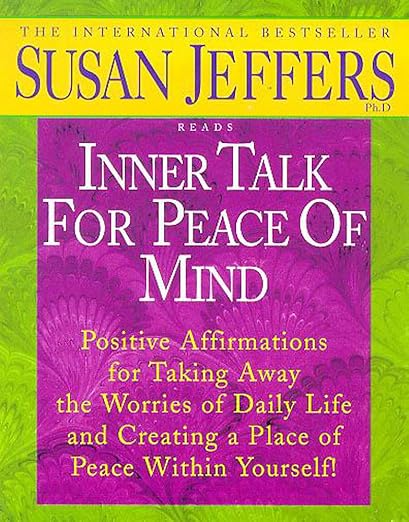Defeating Self-Doubt One Perfect Sentence at a Time
The best way to describe the start of my writing career would be that I fell into it by accident. I wrote my first book, Self-Confidence Made Simple – French Women Share Their Confidence Secrets in response to a question from several of my Next Chapter retreat guests. They wanted to know, “Why are French women so inherently confident?” I wasn’t convinced that they were, but I did ask several of my closest French friends for their opinions, and gathered their explanations in a book, with suggestions at the end of each chapter to help my readers apply my friends’ solutions to their own lives.
So my first book sort of wrote itself.
My last book, Embracing Change, in 10 Minutes a Day, was a completely different story. In this book, I literally sat down in front of my laptop and bled onto the page, following Paul Gallico’s advice, because “It is only when you open your veins and bleed onto the page a little that you establish contact with your reader.” I wanted to share everything I learned about surviving several major life changes, hoping that it will be useful to others.
It was one of the most difficult things I have ever done.
I found inspiration, support, validation, encouragement and motivation in other writers’ quotes, and thought I would share those quotes here, so they might help other writers, especially new writers. So if you have been staring at a blank page for hours, trying to find the courage to string two sentences together, do not quit! Whether you’re still wrestling with the first sentence of that first chapter or trying to coax your inner muse out from under the couch, a little inspiration from a couple of writing quotes can go a long way. Quotes from famous authors can remind you that even when writing feels like herding cats, you’re not alone. Writing can be a wild, sometimes frustrating, but ultimately rewarding journey—one sentence at a time.
How can Writing Quotes help Aspiring Authors?
Quotes have a unique, and often surprising, ability to encapsulate profound truths in just a few well-chosen words, especially motivating for new writers. When faced with the daunting task of creating something from nothing, it’s easy for new writers to feel overwhelmed, unsure, or even discouraged. A well-chosen quote from a seasoned writer can act as a beacon of light, reminding you that the challenges you face are universal and surmountable. Quotes often distil the experience of those who have walked the same treacherous path before you, offering encouragement and insight that can reignite your ambition and motivation.
Writing quotes can help new writers connect with the broader writing community. Knowing that literary giants like Victor Hugo, Franz Kafka, Ernest Hemingway, J.K Rowling and Stephen King faced similar struggles can be incredibly reassuring. These words of wisdom can serve as a reminder that writing is not just about talent, but also about perseverance, discipline, and courage. By reflecting on the experiences of other writers, new writers can find the motivation to push through writer’s block, self-doubt, and any obstacles they encounter on their creative journey.
I worked for me.
I chose the quotes below specifically to uplift and inspire new (and struggling writers. Chances are that some of them might even bring the shadow of a smile to your face.
Inspiring and Encouraging Writing Quotes for New Writers
- “I love being a writer. What I can’t stand is the paperwork.”– Peter De Vries
- “Start writing, no matter what. The water does not flow until the faucet is turned on.” – Louis L’Amour
- “I could write an entertaining novel about rejection slips, but I fear it would be overly long.” — Louise Brown
- “I just sit at my typewriter and curse a bit.” — P.G. Wodehouse
- “If you want to be a writer, you must do two things above all others: read a lot and write a lot.” – Stephen King
- You should write because you love the shape of stories and sentences and the creation of different words on a page. Writing comes from reading, and reading is the finest teacher of how to write.” — Annie Proulx
- “Writing in English is the most ingenious torture ever devised for sins committed in previous lives.” – James Joyce
- “There is no greater agony than bearing an untold story inside you.” – Maya Angelou
- “I can shake off everything as I write; my sorrows disappear, my courage is reborn.” – Anne Frank
- “You can’t wait for inspiration. You have to go after it with a club.” — Jack London
- “A good book isn’t written, it’s rewritten.” — Phyllis A. Whitney
- “If it sounds like writing, I rewrite it. Or, if proper usage gets in the way, it may have to go. I can’t allow what we learned in English composition to disrupt the sound and rhythm of the narrative.” — Elmore Leonard
- “A word after a word after a word is power.” – Margaret Atwood
- “The pen is mightier than the sword, and considerably easier to write with.”– Marty Feldman
- “Your intuition knows what to write, so get out of the way.” – Ray Bradbury
- “Write what should not be forgotten.” – Isabel Allende
- “Anyone and everyone taking a writing class knows that the secret of good writing is to cut it back, pare it down, winnow, chop, hack, prune, and trim, remove every superfluous word, compress, compress, compress…” – Nick Hornby
- “It’s not the fear of writing that blocks people, it’s the fear of not writing well; something quite different.” – Scott Berkun.
- “Write the book that wants to be written.” – Madeleine L’Engle
- “You fail only if you stop writing.” – Ray Bradbury
- “There is no rule on how to write. Sometimes it comes easily and perfectly; sometimes it’s like drilling rock and then blasting it out with charges.” – Ernest Hemingway
- “You own everything that happened to you. Tell your stories. If people wanted you to write warmly about them, they should have behaved better.” – Anne Lamott
- “The only writer to whom you should compare yourself is the writer you were yesterday.” – David Schlosser
- “You don’t write because you want to say something, you write because you have something to say.” – F. Scott Fitzgerald
- “I write to give myself strength. I write to be the characters that I am not. I write to explore all the things I’m afraid of.” – Joss Whedon
- “A non-writing writer is a monster courting insanity.” – Franz Kafka
- “A writer never has a vacation. For a writer, life consists of either writing or thinking about writing.” – Eugene Ionesco
- “If you wait for inspiration to write you’re not a writer, you’re a waiter.” Dan Poynter
- “If there’s a book that you want to read, but it hasn’t been written yet, then you must write it.” – Toni Morrison
- “The scariest moment is always just before you start.” – Stephen King
- “You can make anything by writing.” – C.S. Lewis
- “Write hard and clear about what hurts.” – Ernest Hemingway
- “Writing is an exploration. You start from nothing and learn as you go.” – E.L. Doctorow
- “The purpose of a writer is to keep civilization from destroying itself.” – Albert Camus
- “I can’t write without a reader. It’s precisely like a kiss—you can’t do it alone.” – John Cheever
- “Writing is like driving at night in the fog. You can only see as far as your headlights, but you can make the whole trip that way.” – E.L. Doctorow
- “A writer is, after all, only half his book. The other half is the reader and from the reader, the writer learns.” – P.L. Travers
- “Writing is its own reward.” – Henry Miller
- “It is perfectly okay to write garbage—as long as you edit brilliantly.” – C.J. Cherryh
- “Write while the heat is in you. The writer who postpones the recording of his thoughts uses an iron which has cooled to burn a hole with.” – Henry David Thoreau
- “I think all writing is a disease. You can’t stop it.” – William Carlos Williams
- “The task of a writer consists of being able to make something out of an idea.” – Thomas Mann
- “To produce a mighty book, you must choose a mighty theme.” – Herman Melville
- “I write for the same reason I breathe – because if I didn’t, I would die.” – Isaac Asimov
- “The role of a writer is not to say what we all can say, but what we are unable to say.” – Anaïs Nin
- “Writing is thinking. To write well is to think clearly. That’s why it’s so hard.” – David McCullough
- “If you want to change the world, pick up your pen and write.” – Martin Luther
- “We write to taste life twice, in the moment and in retrospect.” – Anaïs Nin
- “Writing, to me, is simply thinking through my fingers.” – Isaac Asimov
- “Let me live, love, and say it well in good sentences.” – Sylvia Plath
- “The difference between the almost right word and the right word is the difference between the lightning bug and the lightning.” – Mark Twain
- “Tomorrow may be hell, but today was a good writing day, and on the good writing days, nothing else matters.” – Neil Gaiman
- “Everybody walks past a thousand story ideas every day. The good writers are the ones who see five or six of them. Most people don’t see any.” – Orson Scott Card
- “Exercise the writing muscle every day, even if it is only a letter, notes, a title list, a character sketch, a journal entry. Writers are like dancers, like athletes. Without that exercise, the muscles seize up.” ― Jane Yolen
- “Almost all good writing begins with terrible first efforts. You need to start somewhere.” — Anne Lamott
- “And by the way, everything in life is writable about if you have the outgoing guts to do it, and the imagination to improvise. The worst enemy to creativity is self-doubt.” – Sylvia Platt
- “A person is a fool to become a writer. His only compensation is absolute freedom. He has no master except his own soul, and that, I am sure, is why he does it.” — Roald Dahl
- “Don’t try to figure out what other people want to hear from you; figure out what you have to say. It’s the one and only thing you have to offer.” — Barbara Kingsolver
- “Just write every day of your life. Read intensely. Then see what happens. Most of my friends who are put on that diet have very pleasant careers.” — Ray Bradbury
- “I’m writing a book. I’ve got the page numbers done.” – Steven Wright
- “A synonym is a word you use when you can’t spell the other one.” – Baltasar Gracián
- “If you want to be a writer, you must do two things above all others: read a lot and write a lot.” – Stephen King
If you’re a new writer seeking uninterrupted time to immerse yourself in your writing, you are very welcome to attend one of my Writing and Walking the Camino de Santiago retreats. Here, in deepest rural southwest France, you’ll find the perfect blend of exploring stunning landscapes and dedicated writing time. Whether you’re battling writer’s block or simply need a space to let your ideas flow, my retreats offer the solitude you need to bring your stories to life.



























































